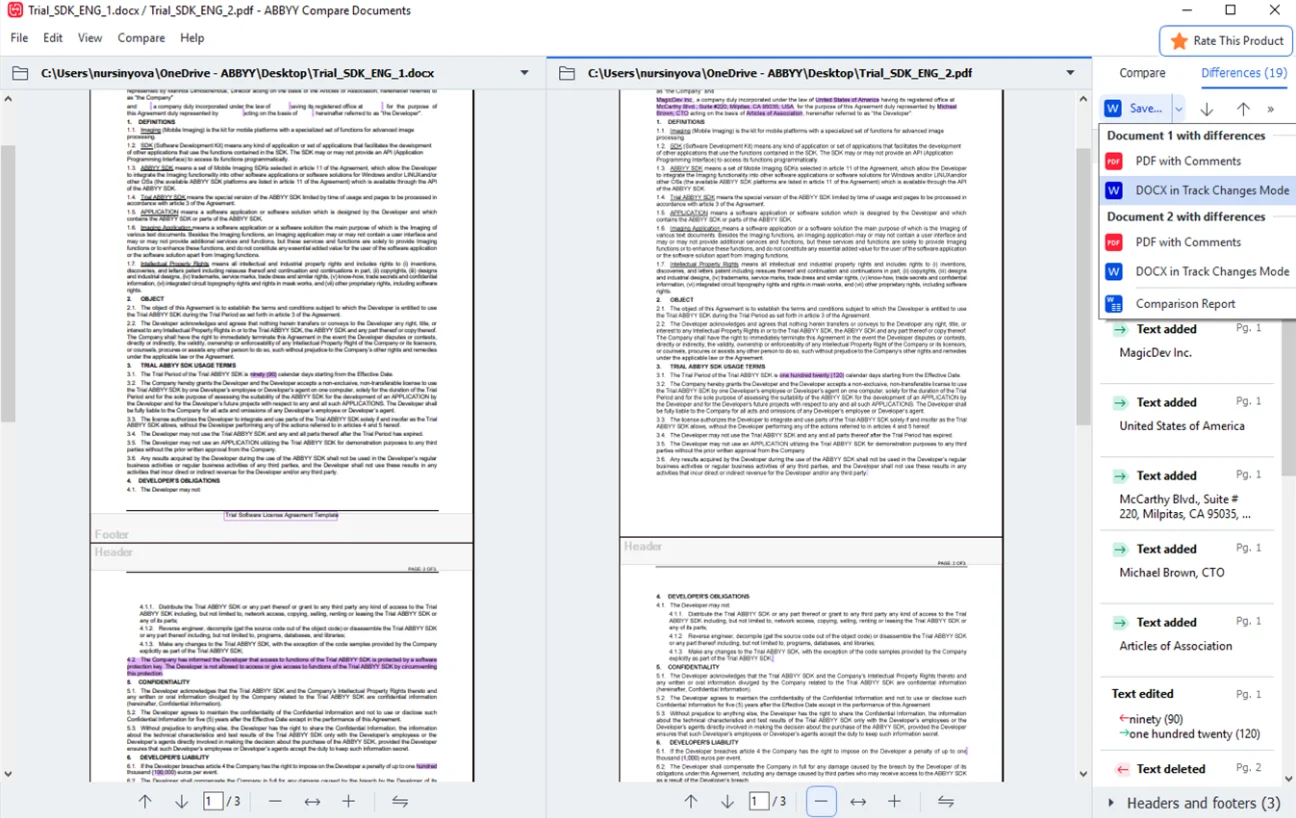Introduction: The New Standard for Law Firms
Still wasting time on old-style training for your legal team or running a case complexity through faculties instead of keeping it simple?
The way people live in the legal world is changing fast, and keeping up with this can’t be traditional workflow, manual research, and paper-based methodologies! Those law firms that are resisting digital transformation are falling behind the attorney speed, accuracy, and service levels, and it’s rather by a significant 2023 ABA survey that 63 percent of law firms harnessing AI tools reported more robust productivity benefits from these tools.
That’s why those smart firms are adopting platforms like Heyeve.ai, an AI platform for legal training for both their employees on learning to make use of top-quality AI tools in the legal industry, but also training the whole team on using such tools effectively. Automate document reviews, upgrade junior associates, and Heyeve will make the practice faster, smarter, and future-ready.
What Is an AI Legal Assistant?
An AI legal assistant is a software that helps lawyers with interpreting different tasks using artificial intelligence in its services. It helps legal professionals get more tasks done faster and more accurately. The system uses machine learning to review texts, evaluate information, and create legal papers.
Think of it as a powerhouse tool that is just waiting to jump in to help you. Its abilities cover reviewing contracts, searching for legal precedents, distilling sophisticated reports, and providing assistance with letter or argument drafting.
With AI, lawyers can speedily handle tiresome jobs of sifting through files or re-writing content, putting their time to matters of strategy, negotiations, and client service.
Stop Guessing. Start Scaling.
Our AI Development Company designs the tools that think and act as well as train like legal pros.
AI Skills That Complement Every Lawyer’s Workflow
The right AI platform for legal training does not provide only tools; it imparts tangible, practical skills. With Heyeve.ai, lawyers learn not just the capabilities of the tech but its application.
The following is a deeper dive into the AI legal skills every modern law office can use to its advantage:
Review and Compare Documents

Sick of going back and forth between contracts? AI will compare two (or several) legal documents instantly and highlight the differences, even infinitesimal ones such as an extra comma or changed date.
- Spot errors or changes that humans can sometimes overlook
- Save significant time in due diligence and version control processes
- Help with the protection against grave omissions in negotiations
Summarize Legal Text
Legal documents are long and dense. You will give them to an AI, which will read them in seconds and summarize them clearly without leaving out important points.
- Wonderful for case files, statutes, or client notes.
- Great for making legal documents easier to digest for non-lawyers.
- Less time needed to prepare for meetings or court.
According to the study done by McKinsey, automation tools like AI can help cut document analysis time by almost 60%.
Draft Contracts and Legal Documents

Generating a first draft is as simple as using AI, as it learns from past templates and cases to create one.
- It significantly shortens the time spent on everyday documents, for example, NDAs, service agreements, and letters to clients.
- Maintains uniform formatting
- Minimizes the need for repetitive rework
Search Case Law and Databases
AI search is more than just keywords. It analyzes the meaning behind words and still finds important cases even when the search terms are imperfect.
- Quicker than conventional Boolean queries.
- Automatically highlights important passages.
- Can discover rare or specialized case law that you might overlook.
This kind of tool becomes particularly effective when used in areas of law subject to rapid changes, like data privacy and employment law.
Create Case Timelines
Do you need to know what took place in a lawsuit as it progressed? New AI solutions take data from your files to automatically build a case timeline for you.
- Saves time in preparing for both discovery and trial, and in staying in touch with clients.
- Identifies occasions when information seems to be absent from the case.
- Excellent for setting up multi-party cases.
Research and Draft
Some AI applications enable simultaneous legal research and document drafting within one window, meaning you do not have to switch tabs or move citations.
- Enhances speed when drafting either opinion letters or motions.
- Offers a way to copy quotes straight from the sources you are reading.
- Keeps you from having to move back and forth between different tools.
Redlining and Clause Extraction
AI can flag contrasts in contract versions, generate proposed redlines, and identify individual clauses such as indemnity, termination, or governing law.
- Such systems aid in streamlining the work done for contract review, mergers and acquisitions, as well as compliance.
- Speeds up negotiations.
- Avoids the danger of not noticing clauses essential to the agreement.
Legal Intake & Chat Automation
AI technology in chatbots enables pre-qualification of leads, frequent question responses, and info collection, all while still needing a human touch.
- Improves response time.
- Filters high-quality leads.
- Allocates more time for financially beneficial tasks among legal staff.
Document Classification and Tagging
AI systems are capable of identifying file categories like discovery or motion, and then labeling them with tags for quicker retrieval later.
- Keeps your case files organized
- Improves collaboration across teams
- It shortens the time needed for audits or trial preparation by automating the organization.
Reliance on AI-driven methods is now required, rather than optional, for law firms aiming to stay competitive. Improvements in these tools open new opportunities for law firms to save both time and resources.
Train Smarter, Not Harder.
Learning to create your own legal AI agent? Ready? Begin your adventure with the top AI agent development company.
Real Law Firms Trust AI Tools—Here’s Why
Every day, AI is proving useful for law firms, giving them a way to work more efficiently, lower their expenses, and deliver even better results for their clients. Different types of firms are already incorporating AI into their main business processes.
Valiant Law
The firm responded to more cases by utilizing AI tools instead of increasing its staff. Drafting time was reduced by over 60% as the team started automating both contracts and client communications.
- More cases handled per lawyer.
- Faster turnaround time for clients.
- All documents drafted by the firm follow the same format.
They currently use AI solutions to support fast reviews of depositions, to summarize witness evidence, and to organize discovery documentation, processes that used to take several days now happen in hours.
Laffey Bucci D’Andrea Reich & Ryan
Focusing on major injury and employment disputes, this firm applies AI systems to examine significant amounts of documentation, mainly in the area of medical reports and case histories.
- Minutes are needed to create summaries of many thousands of records.
- More efficient discovery of claims and events.
- Hearings and depositions are now approached with much more effective preparation.
The result? Lawyers can work on forming strong arguments instead of spending a lot of time reading.
Hawaii Disability Legal Services
The organization focuses on giving legal assistance to those living with disabilities. Using AI, this small team enhances access to services and greatly reduces the need for manual tasks such as creating letters, searching law resources, and making legal records.
- Individuals who have received minimal legal instruction can help clients.
- Enhanced reaction time for individuals filing critical disability claims.
- States now benefit from higher quality communication with staff working on behalf of clients.
AI has the potential to reduce barriers, so small legal nonprofits can deliver quality assistance efficiently.
These firms demonstrate that AI tools make a measurable difference, helping improve work in all kinds of legal organizations, big and small.
Top 12 AI Tools Lawyers Should Know
Law firms currently feel the need to expedite processes, manage greater intricacy, and provide superior results, all whilst avoiding additional workload. Therefore, law firms are turning to these twelve AI tools, which simplify work, conserve many hours weekly, and help with avoiding fatigue.
Heyeve AI
Heyeve is an artificial intelligence (AI) based legal training platform that merges contemporary immersive virtual reality (VR) simulations and smart feedback systems to train lawyers ready for real courtroom experiences. Users can practice real-looking mock trials and interact with AI-based judges and witnesses, and obtain a real-time performance assessment. This practical approach helps develop advocacy skills, critical and legal thinking, and makes Heyeve a full-scale instrument of contemporary learning and practice of law.
Clio Duo
The Clio Duo service is the AI solution integrated with the Clio practice management stack. With it, lawyers are able to handle everyday administrative duties such as taking on new clients, organizing meetings, setting up reminders, and producing forms. If you are a lawyer who uses Clio, Duo will help behind the scenes, automating tasks so you can concentrate entirely on your clients’ matters. By removing much of the need for manual follow-up, this solution helps decrease missed deadlines and allows business operations to run efficiently.
CoCounsel (Casetext)
CoCounsel belongs to the most advanced AI copilots on the legal technology market. It is precise in analyzing both case law and statutory matters as well as legal inquiries. Users of this platform can quickly find legal precedents, draft memos, summarize depositions, and analyze lengthy legal papers. Tasks such as reading through depositions or finding legal cases that once took lawyers hours to complete can be done quickly in only a few minutes.
Harvey AI
Harvey was designed to meet the needs of law firms that regularly operate within multijurisdictional or multiproblematic regulatory spaces. Harvey uses the power of GPT-4, while also receiving its training from legal-specific documents. Harvey supports automated document reviews, complex contract drafting, and litigation research that requires an understanding of diverse contexts. Because it can manage large amounts of compliance data precisely using legal terms, Harvey is increasingly used by BigLaw firms.
ChatGPT
ChatGPT, although not originally designed for law professionals, is now used every day by staff in many firms. Lawyers find it helpful to rephrase emails from clients in clearer language, outline arguments, provide summaries of cases, and generate initial drafts of blog posts, intake documents, or regular legal correspondence. It can be a great help to solo practitioners working on a range of legal and administrative operations. Because it is flexible, ChatGPT is valuable in legal operations, so long as it is employed responsibly and ethically.
Diligen
Diligen is a contract review technology created to handle large volumes of legal documents effectively. The software reviews agreements, marks key clauses, alerts users to rare language, and also tracks all changes in different versions. Enterprises in the corporate law sector use it especially during mergers and acquisitions, during compliance audits, and throughout contract lifecycle management. Diligen does not require users to read every agreement word by word, so legal teams can complete reviews more efficiently but with the same standard of accuracy.
Auto-GPT
The tool Auto-GPT is intended for those in law who wish to automate a series of tasks. Rather than entering prompts one by one, users choose a task such as ‘summarize these five documents and draft a case brief’ and leave Auto-GPT to break down the workflow. Those comfortable with configuring technology will find it most useful, as the tool is quite customizable. Many research teams and litigation support departments utilize Auto-GPT to automate introductory research tasks and produce templates by extracting data from clients.
Smith.ai
Smith.ai utilizes artificial intelligence to ensure firms can respond to clients around the clock. It fields calls, holds client conversations, sets up consultations, and fills out intake forms on behalf of users. Smith.ai operates as a continuous and dependable front-desk assistant for solo lawyers and small firms. It maintains responsiveness throughout the day, keeping all leads active and timely responding to inquiries from clients, while also ensuring that scheduled appointments happen, regardless of the hour. Smith.ai provides a reasonable way for firms to provide full-time support without adding permanent staff.
Gideon
Website users encounter Gideon, a lead qualification and intake assistant, as soon as they visit your site. Gideon asks potential clients questions to screen them, gathers case details, and decides if the lead is worth your team’s effort. Using the available integrations, Gideon helps law firms automate essentially the first touchpoint with each potential client. The value is greatest in high-volume practices such as personal injury, where incomplete fits are common and reviewing inquiries manually reduces effective work.
Darrow.ai
Darrow reviews public databases, legal filings, and regulatory content in order to spot new trends in legal disputes. Lawyers rely on it to discover signs of emerging class actions or mass torts before they become widely public. By starting with data analysis, it helps lawyers in creating cases that reflect emerging trends as well as the proper timing. For those law firms that depend on plaintiff work, Darrow acts as a tool for spotting new opportunities in advance.
Eudia
Eudia gives law professionals practical guidance for improving their writing. It measures how well sentences are written, how they are organized, the appropriate tone, and the law’s consistency in the text. Eudia can help you write stronger arguments and more persuasively, regardless of whether your document is a motion, a legal memo, or a cover letter. It assists juniors, paraprofessionals, and lawyers of any experience by giving them a check before they submit their work. In addition, it helps lawyers develop better writing habits as they use the tool.
Supio
Supio is a prompt repository intended to serve legal teams that consistently utilize AI. You can reuse prompts you have saved and arranged with Supio for common requirements such as intake summaries, contract drafting, and memo formatting. It contributes to uniformity within a team and simplifies how firms can scale up their AI usage. Supio is particularly important for law firms with numerous users who wish to share prompt creation resources.
Benefits of Using AI Tools in Your Law Firm
Modern legal work increasingly requires AI tools instead of regarding them as just a plus. Running a law firm of any size, AI allows you to achieve more efficient outcomes with fewer inputs.
An important benefit is the reduction of time spent on routine tasks. Work that used to take lawyers hours, including contract review, document creation, or case law summaries, can now usually be done quickly in minutes. So, lawyers are able to dedicate more effort to client relationships, development of legal plans, and work that generates revenue.
These tools contribute to the improvement of accuracy in legal tasks. Since AI does not become fatigued, it consistently notices all details in documents, no matter how long they are. When it is trained properly, AI technology can spot issues, missing language, or inconsistent language that might create problems later.
Artificial intelligence is a smart and economical solution for law firms that want to manage more workload with the same staff. Intake bots can qualify leads 24/7. Contract generation at volume is easily accomplished with the use of drafting tools. Legal research tools supported by AI can compare and analyze case law from several territories much faster than humans can.
Finally, AI improves consistency. AI tools help maintain consistency throughout your team’s document writing, contract review, and email drafting. As a result, you experience fewer mistakes, better compliance, and increased client trust.
Free the world from Chatbots that do not understand the law.
Explore our AI Chatbot Development services for legal use cases.
How to Choose the Right AI Tool for Your Firm
This section outlines ways to make smart AI tool selections for your firm.
The process of selecting an AI tool is less about these features and more about identifying the solutions that fit your firm’s particular pain points. To assist you with making the best choice:
Identify Firm Needs
Assess what functions currently create delays for your team. Is it a contract review? Intake? Research? Clarifying the most challenging tasks allows you to match tools directly to those workflow difficulties. As an example, a personal injury firm could benefit from an intake chatbot, although a corporate firm may need a tool that analyzes contracts.
Evaluate Security and Compliance
Legal data is sensitive. Any AI solution you use must comply with both data privacy laws and security best practices. Always choose a tool that keeps your client data encrypted, provides logs for all actions, and meets regulatory requirements such as GDPR or HIPAA. Take the time to read every privacy policy, and do not avoid it.
Assess Usability
The utility of a tool comes from your team’s ability to engage with it regularly. Select a solution with a user interface that is easy to understand. Whenever possible, steer clear of tools that need technical expertise, unless someone on your staff can provide this support. Select a tool where training times are much shorter since spending weeks in training is usually a warning sign.
Check Integrations
Your AI tool ought to fit seamlessly into the programs your firm uses, like Clio, MyCase, Microsoft 365, or Google Workspace. When the tool isn’t integrated, your team must switch among systems, which slows down operations and increases manual effort.
Verify Vendor Reputation
Don’t just trust marketing copy. Check who’s using the tool. Are reputable law firms among the tool’s customers? Find written reviews, highlighted case studies, or social media posts by lawyers on LinkedIn to learn about real-world experiences. Technical support staff and up-to-date software releases are positive indicators.
Avoid AI Hype
AI marketing language can be highly misleading these days. Saying a tool is ‘AI’ does not guarantee it provides real benefits. Do not trust promises that the product is ‘100% automated’ or that it can ‘replace your staff.’ rake your attention on actual solved tasks, not marketing language.
Why Heyeve is the #1 AI Platform for Legal Training
Where most legal tech focuses just on automation, Heyeve integrates AI with real, interactive training. Lawyers receive not just drafting help; they are taught how to implement AI properly in regular legal tasks.
What distinguishes it is the use of virtual reality simulations that support practice in tasks such as client interviews, document analysis, and mock trials. This realistic approach allows lawyers to acquire real competencies instead of merely using shortcuts.
Unlike a simple AI solution, Heyeve offers everything needed for learning, applying, and perfecting the use of legal technology.
AI and Ethics: Accuracy and Trust
Accuracy Matters
AI services work quickly, but this advantage is worthless if they are not accurate. An error in a contract or legal memo may result in major problems. For this reason, AI tools should concentrate on accuracy above all else.
Human Oversight Is Essential
Lawyers will continue to be responsible, because AI should only help with tasks rather than replace them. Lawyers must always verify and determine the output of the tools, even when these tools can draft, summarize, or search. Judgment can’t be outsourced.
Data Privacy Comes First
Ethical AI depends greatly on keeping client information safe. Ensure that all tools used are safe, follow the regulations on client data protection, and let you handle your own stored information.
Trust Is Earned
It is important to realize that clients confide in you with confidential matters. Trusted use of AI helps you keep your clients’ faith by making your work better, not faster or easier. Use AI as a way to improve your work rather than changing your duties.
Final Thoughts!
AI is transforming the ways in which law firms do their work. It is not about replacing attorneys, but about supplying them with improved tools.
The use of AI with the appropriate configuration lets attorneys outsource repetitive duties, cut down on mistakes, and create extra time for strategic planning, creative thinking, and client engagement. Choosing the right tools supports contract drafting, document review, and staff training, letting you proceed with greater speed and maintain top standards.
Using platforms such as Heyeve helps with the change by offering both effective AI tools and useful training, together. The legal field is evolving. Those lawyers who keep up with new methods will increase their workload, handle stress better, and remain at the forefront.
Frequently Asked Questions FAQs?
What’s the best AI for legal research?
Legal research tasks benefit from the accurate nature of CoCounsel by Casetext. Because it is trained using legal information, the platform supports memo writing, searching for case law, and producing summaries. A large number of firms also integrate ChatGPT with this tool to support general drafting needs.
Will AI replace lawyers?
No, because AI is being used as a supportive tool, not as a substitute. It handles routine tasks well, but making important decisions, upholding ethics, and analyzing legal details is a job for people. AI provides assistance for lawyers, but it does not lead cases or provide advice.
Can Heyeve integrate with Clio or Microsoft 365?
Yes. With Heyeve, you can use most practice tools by connecting them and exchanging information through simple import/export processes. This allows all your work, whether it’s a draft or a summary, to stay together in the same system.
What if I’m new to AI?
No problem. Heyeve is designed to be accessible to beginners as well. Guided flows, practical use cases, and full customer support are available on the platform, making it easy to begin without specialized technology knowledge. You build your confidence while using the platform’s options.


